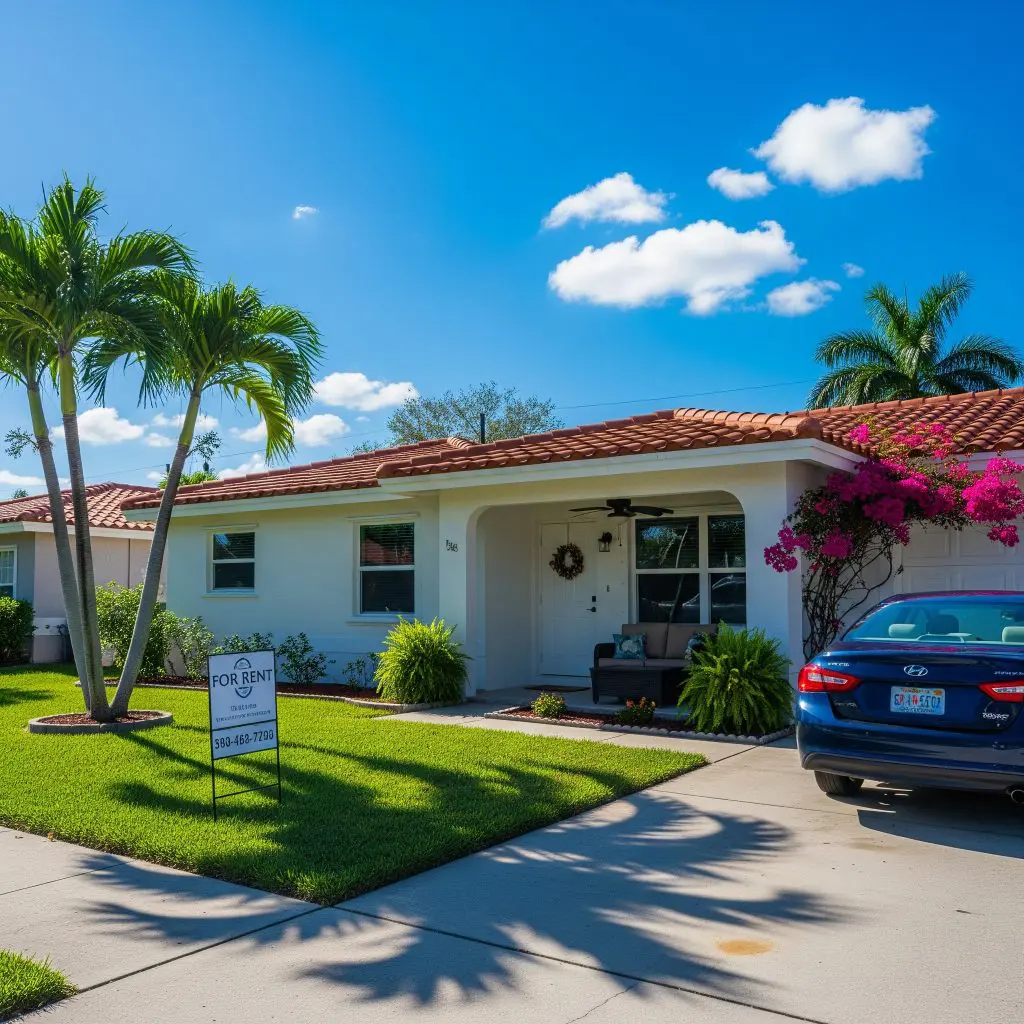How to Analyze a Rental Property for Cash Flow
(The definitive guide for Florida real estate investors)
Miami – October 28, 2025: If you’re actively investing in Florida — whether in Miami (33131, 33132), Orlando (32801, 32817), Tampa (33602, 33604), Jacksonville (32205, 32207) or emerging markets like Lakeland (33801), Palm Coast (32137), or Ft. Myers (33901) — learning how to analyze a rental property for cash flow is one of the most critical skills you can master. In a market where acquisition prices are rising and competition is fierce, strong underwriting and disciplined financial modeling separate the winners from the losers.
- Why Cash Flow Analysis Matters (Especially in Florida)
- Step-by-Step: How to Analyze a Rental Property for Cash Flow
- Current Market Insights: Rates & Requirements (Florida, October 28 2025)
- Why GHC Funding is the Go-To Lender for Cash-Flow-Focused Investors
- Florida-Targeted Investment Scenarios & Geo-Targeting Examples
- Why This Analysis + Financing Approach Works
- Frequently Asked Questions (Q&A)
- Summary & Next-Steps
- Get a DSCR loan quote in Florida.
This guide will walk you through:
- Why cash-flow analysis matters more than ever in Florida
- Step-by-step how to calculate and interpret key metrics
- Current financing market insights (rates, requirements, terms) relevant to buy-and-hold investors
- How to leverage a financing partner like GHC Funding
- Florida-specific examples (zip codes, neighborhoods, property types)
- Frequently asked questions (Q&A)

Why Cash Flow Analysis Matters (Especially in Florida)
Florida’s real estate market offers both tremendous opportunity and elevated risk. With strong population growth, favorable tax laws, and robust tourism and rental demand in cities like Miami, Orlando and Tampa, the potential to generate rental-income is high. But the same factors that drive opportunity — competition, rising acquisition cost, regulatory risk (especially in short-term rental markets), and financing constraints — make rigorous cash-flow underwriting essential.
For the investor who knows how to analyze a rental property for cash flow, you’ll gain:
- A clear picture of whether the deal truly produces positive net returns (not just “looks good”)
- The ability to stress-test the deal under different scenarios (vacancy, rising expenses, slower rent growth)
- A stronger financing position when you approach lenders or partners
- A durable investment that can weather economic cycles, interest-rate rises, or local market fluctuations
And when you link your underwriting to a financing strategy via GHC Funding (specializing in DSCR Loans, SBA 7a, SBA 504, Bridge Loans & Alternative Real Estate Financing), you position yourself not just to acquire deals—but to scale a portfolio intelligently.
DSCR Loan IQ Quiz!

Test your knowledge of Debt Service Coverage Ratio (DSCR) loans!
Step-by-Step: How to Analyze a Rental Property for Cash Flow
1. Gather Your Raw Data
Before any calculations, collect the following:
- Purchase price or current value of the property
- Estimated gross monthly rent (or current rent roll for an existing rental)
- Estimated vacancy rate for the market (Florida markets typically use 5 %–10% for well-occupied rentals)
- Operating expenses: property taxes, insurance, property management (if applicable), repairs/maintenance, reserves, HOAs (if any), utilities (if landlord-paid)
- Financing costs: expected loan amount, interest rate, term, amortization, other loan fees
- Other income or costs unique to Florida: flood insurance (in coastal or flood-zone ZIPs like 33139, 34102), short-term rental licensing or regulatory cost, special assessments
2. Calculate the Net Operating Income (NOI)
Formula:
[
\text{NOI} = \text{Gross Rental Income} – \text{Vacancy Allowance} – \text{Operating Expenses}
]
Example (Miami neighborhood, ZIP 33133):
- Gross monthly rent: $3,200 → Annual = $38,400
- Vacancy (7 %): $2,688
- Operating expenses (taxes $4,800 + insurance $1,200 + management 8% of rent $3,072 + repairs/reserves $1,500): $10,572
- NOI = $38,400 – $2,688 – $10,572 = $25,140
3. Determine Annual Debt Service
Given expected loan terms, calculate annual mortgage payments. Suppose you plan to finance $200,000 with a 30-year term at interest rate ~7.0% (see current market insight below).
Use an amortization calculator or formula to find annual debt service ≈ $16,000 (just for illustration).
4. Compute Cash Flow and Key Metrics
- Cash Flow Before Taxes = NOI − Annual Debt Service → $25,140 − $16,000 = $9,140 (≈ $762/month)
- Cash on Cash Return = Annual Cash Flow ÷ Equity Invested (assume 25% down on $250,000 deal → $62,500) → $9,140 ÷ $62,500 ≈ 14.6%
- Debt Service Coverage Ratio (DSCR) = NOI ÷ Annual Debt Service → $25,140 ÷ $16,000 = 1.57×
A DSCR above 1.2–1.3 is generally considered healthy in Florida markets. (Many lenders require 1.1–1.25+.) (Largo Capital)
5. Stress-Test the Deal
Run conservative scenarios:
- Increase vacancy to 10%
- Increase repairs/maintenance by 20%
- Reduce rent growth to zero for 2 years
Recalculate NOI, debt service coverage, cash flow under those scenarios. If the deal still yields positive cash flow and DSCR remains above ~1.2, it’s a strong acquisition candidate.
6. Factor in Florida-Specific Variables
- Coastal ZIPs (e.g., 33149, 34102, 33931) often require higher insurance/flood/security budgets
- Short-term rental regulation (e.g., Orlando tourist zones 32819, 32819) may limit your strategy
- Tax-benefit modeling: Florida has no state income tax — favorable for cash-flowing rental investors
- Appreciation vs. cash flow: In hot markets (Miami 33139, Tampa 33606) you might accept lower initial cash flow, but always ensure buffer exists
7. Decide Financing Strategy and Time Horizon
Are you planning a hold for 5-10 years? A value-add rehab? A short-term rental flip? The financing you choose matters heavily:
- Use long-term fixed or DSCR style long amortization for stable cash flow
- Use bridge or alternative financing if repositioning or doing a value-add
- Align your hold strategy with underwriting assumptions
Ultimate Rental Property Loan Quiz

Navigating the world of real estate investment can be complex, especially when it comes to financing. Securing a loan for a rental property is a critical step for any aspiring landlord. This quiz is designed to test your knowledge on this important topic and help you understand the key factors involved in the process.
Current Market Insights: Rates & Requirements (Florida, October 28 2025)
Interest Rate Range
For rental-property financing in Florida (non-owner-occupied) you can expect:
- DSCR/long-term rental loans: roughly ~6.5% to 8.5% for well-qualified deals. (investmentpropertyloanexchange.com)
- Some programs for Florida suggest rates “from 5.875%” (for very strong profiles) on 30-year fixed DSCR. (New Silver)
- Conventional investment-property mortgage rates (for 2-4 units) can run higher than owner-occupied by ~1% or more. (Bankrate)
Factors influencing your rate in Florida:
- LTV/Loan-to-Purchase Price: Lower LTV → lower rate
- DSCR ratio: Higher DSCR (1.3×+) → better terms
- Credit score: Minimum ~660 in many DSCR programs in Florida. (Fidelity Home Group)
- Property type & condition: Single-family, 2-4 units, well-leased stand out
- Location/market risk: Coastal/flood zone or distressed markets may carry premium
Typical Loan Requirements (For DSCR / Investor Loans)
Based on Florida market data:
- Minimum credit score: ~660 (some lenders may require 680+). (Fidelity Home Group)
- Down payment / Equity: Often 20% for 1-4 units; for non-warrantable condos or 5-8 units it may be 25–30%. (Fidelity Home Group)
- Maximum LTV for purchase: Around 80–85% for strong deals. (New Silver)
- Minimum DSCR: Many lenders expect ≥ 1.1 to 1.2 for stability. (OfferMarket.us)
- Property types allowed: Single-family, 1-4 unit multifamily, townhomes, condos (warrantable) in most cases.
- Entity ownership: Many programs allow ownership by LLC/Corp, which is ideal for investor portfolios.
- Reserves: Lenders typically expect 6-12 months of mortgage payments or operating reserves.
Test Your Florida Investment Prowess!

Florida, the Sunshine State, is a magnet for residents, tourists, and, increasingly, real estate investors. With its diverse markets, from bustling metropolises to serene coastal towns, understanding Florida's unique landscape is crucial for anyone looking to enter the investment property game, especially when exploring options like no income verification rental property loans for new investors.
How well do you know the state that offers unparalleled investment opportunities? Take our quiz and find out!
Why GHC Funding is the Go-To Lender for Cash-Flow-Focused Investors
When you’re analyzing a rental property for cash flow and need financing that aligns with your goals — not one that forces you into conventional underwriting cones — you need a partner who understands investor deals inside-out. Here’s why GHC Funding is uniquely poised to serve you:
- Investor-First Focus: GHC Funding specializes in investor-style financing: DSCR Loans, SBA 7a, SBA 504, Bridge Loans & Alternative Real Estate Financing. Because they truly understand investor dynamics, they structure deals around cash-flow metrics, not just personal income.
- Flexible Underwriting: They allow entity ownership (LLC, LP), multiple property types (single-family rentals, small multifamily, vacation rentals in Florida) and offer bridges-to-term conversions when your hold or reposition strategy demands it.
- Market Expertise in Florida & Beyond: They know ZIP codes, neighborhood nuances, rental comps in Florida hot spots like Orlando 32817, Tampa 33614, Jacksonville 32225, Ft. Lauderdale 33301. That means they speak your language and preserve underwriting integrity.
- Speed + Transparency: In a competitive Florida marketplace, speed matters. GHC Funding offers streamlined documents, clear checklists, and investor-friendly closing timelines so you can act quickly.
- Focus on Cash Flow & Scaling: Their approach helps you model deals for durability — especially important when you’ve asked “how to analyze a rental property for cash flow”. They assist you not just with financing, but with deal readiness and underwriting robustness.
If your goal is to acquire or refinance rental properties in Florida with a focus on cash flow and scale, then go to www.ghcfunding.com or call 833-572-4327 today and speak with a loan advisor who understands your profile.
Florida-Targeted Investment Scenarios & Geo-Targeting Examples
Scenario A: Orlando (ZIP 32817 – Conway/Mills 50 corridor)
You identify a 3-bed/2-bath single-family rental near Lake Conway.
- Purchase price: $330,000
- Estimated monthly rent: $2,600 → annual $31,200
- Vacancy 8%: $2,496
- Expenses (tax $4,200, insurance $1,000, management 8% $2,496, repairs/reserves $1,200) ≈ $8,896
- NOI ≈ $31,200 − $2,496 − $8,896 = $19,808
- Financing through GHC Funding: $250k loan at 7% 30-yr → annual debt ≈ $20,300 → DSCR ~0.98 (too low)
→ In this scenario, you would instead negotiate price, seek stronger rent, or use a bridge-to-term product to improve cash flow. - With proper modeling, you might target neighborhoods like zip 32825 (Horizon West) where rents may be higher and expense structure more favorable.
Scenario B: Tampa (ZIP 33614 – Carrollwood)
You locate a 4-unit small multifamily near US-92 for $520,000.
- Gross monthly rents (4 units at $1,575 each) = $6,300 → annual $75,600
- Vacancy 7%: $5,292
- Expenses (tax $7,800, insurance $2,300, management 7% $5,292, repairs/reserves $2,400) ≈ $17,792
- NOI ≈ $75,600 − $5,292 − $17,792 = $52,516
- Loan via GHC Funding: $416k (80% LTV) at ~7.25% → annual debt ≈ $33,700 → DSCR ≈ 1.56× → strong cash-flow buffer.
- Cash flow ~$18,816/year → Cash on cash (25% equity = $130k) ~14.5%.
- Solid Florida hold market with multi-unit scale potential.
Scenario C: Jacksonville (ZIP 32225 – Arlington/Beach Blvd)
Small 2-unit ask $275,000.
- Rents $1,450 + $1,500 = $2,950/month → $35,400/year
- Vacancy 9%: $3,186
- Expenses estimate $6,400 tax + $1,100 ins + $2,650 mgmt + $1,000 reserves = $11,150
- NOI ~$35,400 − $3,186 − $11,150 = $21,064
- Financing: $210k loan at 6.9% → annual debt ~$17,000 → DSCR ~1.24× → acceptable but tighter margin, reserve strategy vital.
- Here GHC Funding’s underwriting and advice around reserves, stress-testing and entity structuring are key.
These geo-targeted illustrations demonstrate how cash-flow analysis, when paired with the right financing strategy, gives investors clarity and confidence in Florida markets.
Quiz on Florida Rental Property Laws and Regulations

Test your understanding of the essential laws and regulations for owning and managing a Florida rental property. This quiz will cover key topics every landlord should know to ensure legal compliance and a smooth operation.
Why This Analysis + Financing Approach Works
Traditional mortgages often force you to qualify based on personal income, rigid debt-to-income ratios, and limited flexibility for investor property types. In contrast, the approach we’ve laid out — focused on how to analyze a rental property for cash flow, paired with investor-centric financing via GHC Funding — offers three unique benefits:
- Property-centric underwriting: You qualify based on the property’s income performance, not just your W-2. That unlocks deals where your personal tax returns may not reflect the full rental income.
- Scalability & flexibility: Because you understand cash flow metrics and use financing designed for investors (DSCR, bridge, alternative), you can scale your portfolio rather than being bottlenecked by traditional lending constraints.
- Risk mitigation via stress testing: By modeling vacancies, expense increases and leveraging financing modes that allow entity ownership and flexible terms, you build a portfolio that can weather market fluctuations — especially important in Florida where hurricanes, tourism cycles and supply changes matter.
In short: By mastering the “how to analyze a rental property for cash flow” lens and using the right financing partner, you turn from deal-scroller into deal-acquirer with confidence.
Frequently Asked Questions (Q&A)
Q1. How do I set a realistic vacancy rate when analyzing a Florida rental?
A: Review local rental market reports, historical occupancy in the sub-market (e.g., Orlando 32817, Tampa 33614), and for smaller multifamily assume 5-10%. If you’re in a tourist area or short-term rental zone (e.g., Miami Beach 33139), a higher vacancy reserve may be wise.
Q2. What DSCR ratio should I aim for to be safe in Florida?
A: Generally target ≥ 1.25× for strong deals. Many lenders in Florida require 1.1–1.2× as a minimum. A buffer protects you if rents drop or expenses rise.
Q3. Can I use entity (LLC/Corp) ownership for a financing deal and still analyze cash flow?
A: Yes. With investor-friendly lenders like GHC Funding, you can hold the property in an LLC and qualify based on its cash flow. The analysis (NOI, vacancy, debt service) remains the same; documentation aligns with entity ownership.
Q4. What interest rate might I secure today for a Florida rental property?
A: As of October 2025, DSCR-style long-term rental loans are commonly in the ~6.5% to 8.5% range in Florida, depending on credit, DSCR ratio, LTV and property type.
Q5. How much equity/down payment is typically required in Florida investor deals?
A: Many DSCR programs require 20% down for single-family or small multifamily; for non-warrantable condos or 5-8 units you may need 25-30% equity.
Q6. How does short-term rental risk affect cash-flow analysis in Florida markets?
A: If you plan an STR (Airbnb, vacation rental) in a Florida tourist market (e.g., Orlando, Miami, Ft. Myers) you must account for higher regulatory risk, seasonality (off-peak months), higher turnover/maintenance, and possible licensing or HOA restrictions. That means more reserves, conservative vacancy and conservative rent assumptions.
Q7. When should I consider a bridge loan vs a long-term rental loan for cash-flow analysis?
A: Use a bridge when you’re acquiring a value-add property (requiring rehab), repositioning, or waiting for rent growth. During that period your cash flow may be lower. Once stabilized, convert to a long-term rental loan (via GHC Funding) and analyze cash flow under long-term assumptions.
Summary & Next-Steps
Analyzing a rental property for cash flow is not optional — it’s mandatory if you want to succeed as an investor in Florida. By following the step-by-step framework above, stress-testing deals, and using investor-specialized financing, you’ll build a portfolio that delivers sustainable returns, not just speculative upside.
When you pair your underwriting with the right capital partner — GHC Funding — you gain access to investor-tailored DSCR, SBA 7a, SBA 504, Bridge and Alternative Real Estate Financing. That enables you to execute deals more confidently, scale faster, and avoid many of the pitfalls of traditional financing.
Ready to move forward? Visit www.ghcfunding.com or call 833-572-4327 and speak with an advisor who understands how you analyze cash flow, structure terms, and scale your rental portfolio.
With the right analysis + the right lender, your next Florida rental acquisition could be your smartest move yet.
External Resources for Florida Investors
- Central Florida Realty Investors Association (CFRI) – Orlando-area real estate investors. (cfri.net)
- Real Estate Investment Society of Southwest Florida (REIS-SWFL) – Networking & education in Southwest Florida. (Real Estate Investment Society)
- Coastal Florida Real Estate Investors Association (CFREIA) – Treasure Coast network. (cfreia.com)
- Florida Realtors – Statewide market & legislative data. (Florida Realtors)
- National Real Estate Investors Association (National REIA) Florida chapter directory. (National REIA)

